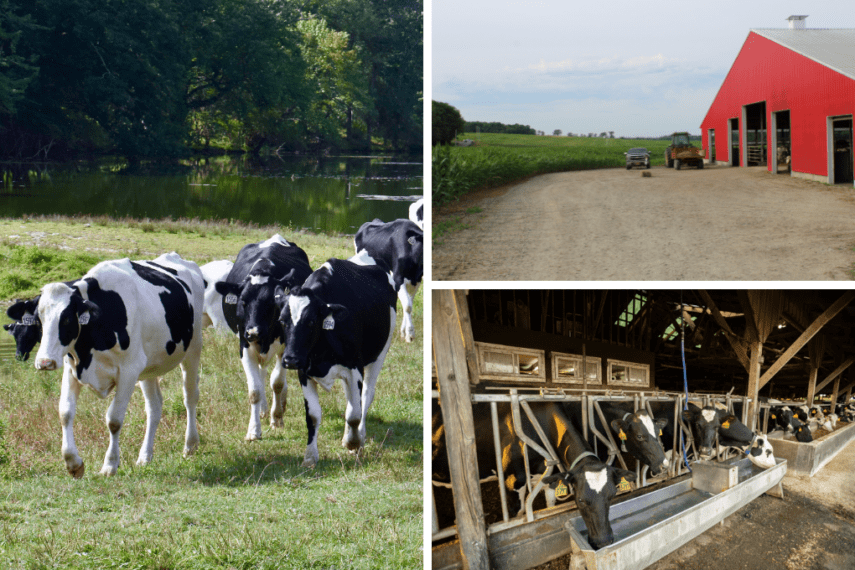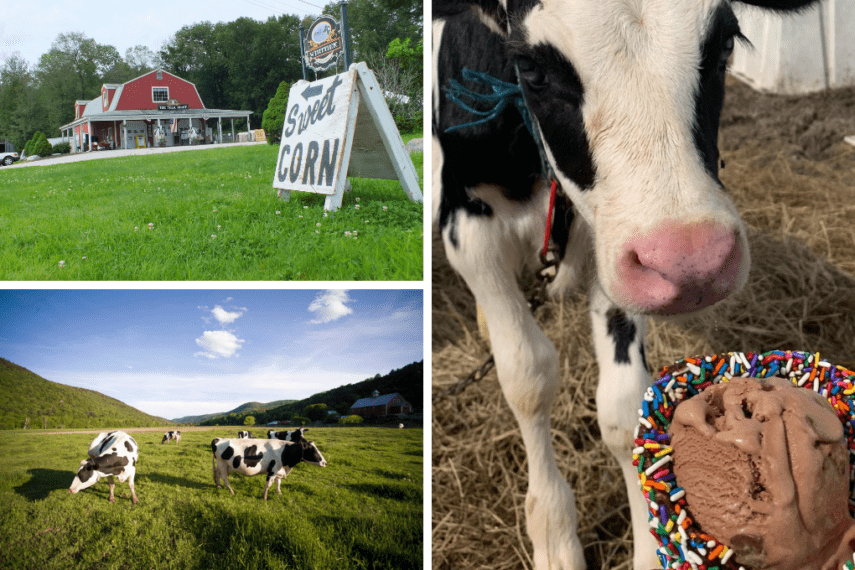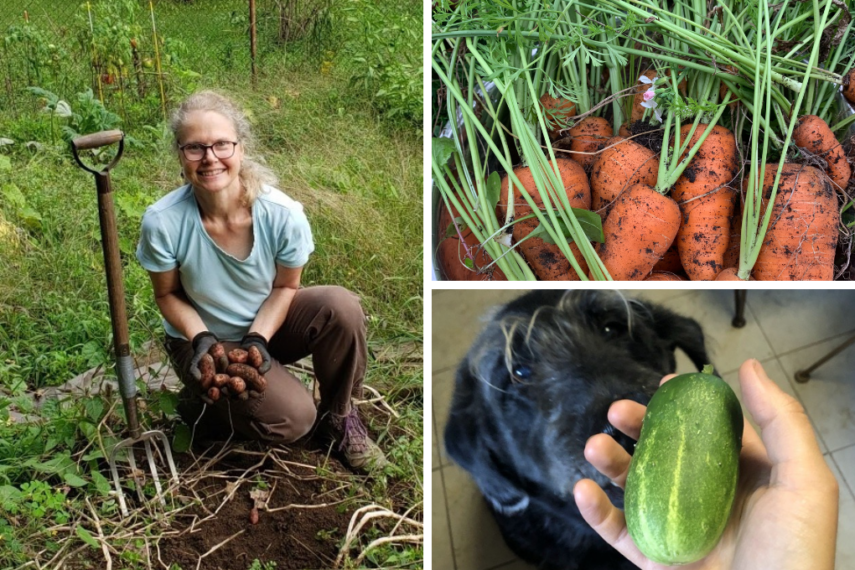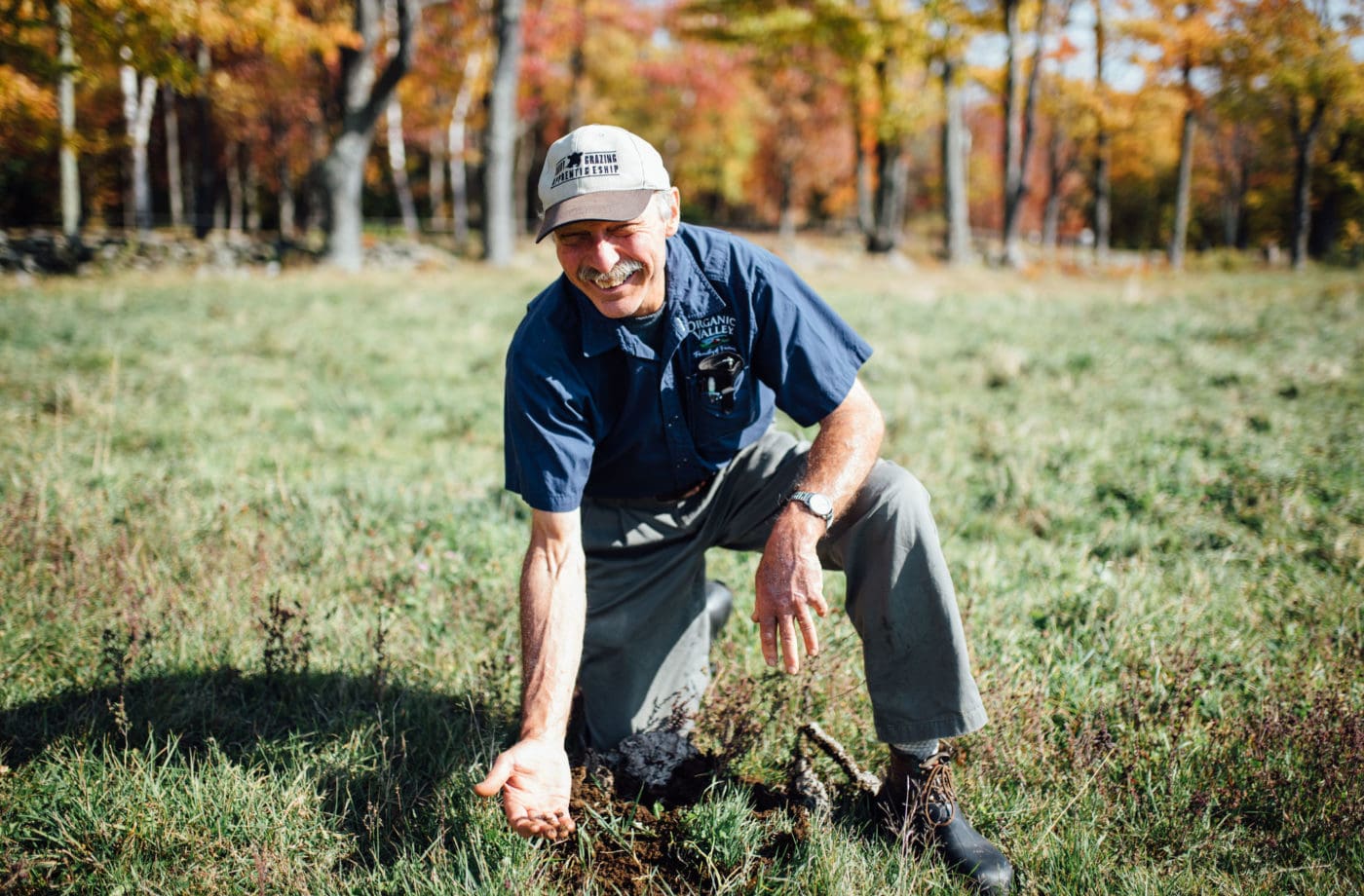
We all have places we’ve been that stick with us because they bring about a sense of peace and balance. When we recall these places and our memories there, it helps us center ourselves. For me it’s a rocky riverbank near my house at sunset when the leaves are falling and floating away. And this week I’m adding another place: the grassy fields at the Corse Farm Dairy in Whitingham, Vermont.
I could physically feel the love of the land that the farmers there have as I watched them run their fingers through their soil. The sense of balance they had achieved was tangible.
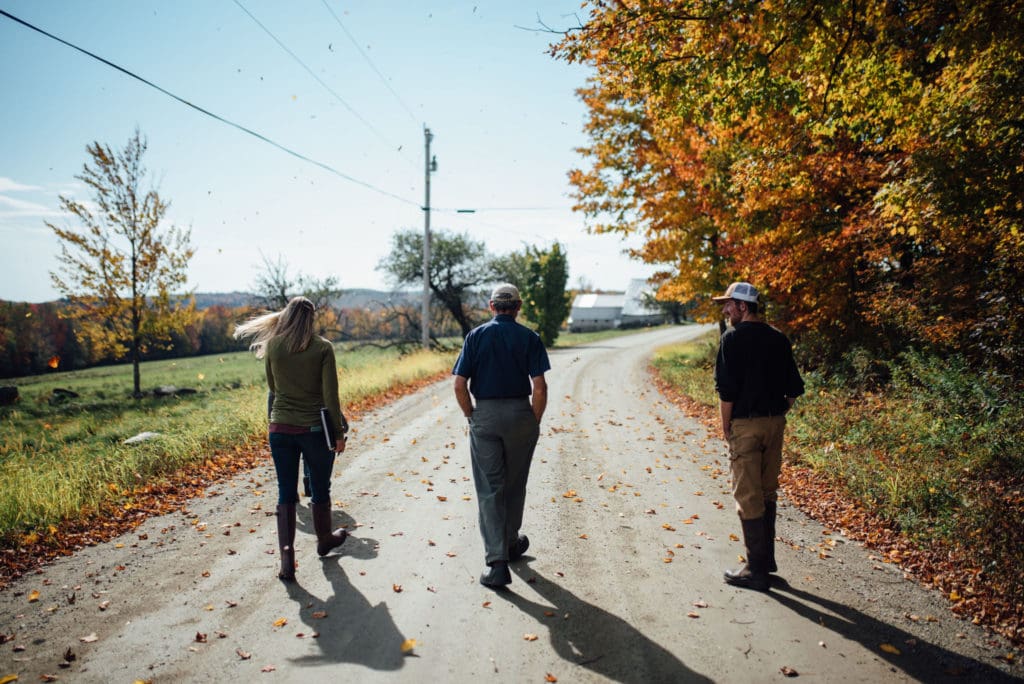
Leon Corse is a 5th generation dairy farmer caring for his over 150-year-old dairy farm alongside his family and a farmer apprentice he mentors. He’s what people call an “old Vermonter” complete with the subtle Vermont accent he has that draws out words and automatically slows down the conversation.
That slow talk is a contrast to the speed that he works. As we walked across his farm with his family, he was moving fencing, feeding cows and leading us at a brisk pace, even when he had to carry his 6-year-old grandson Niko up a hill. Yet, he doesn’t seem to worry that he won’t get all of his work done. He gives you his undivided attention in a conversation and offers heartfelt observations.
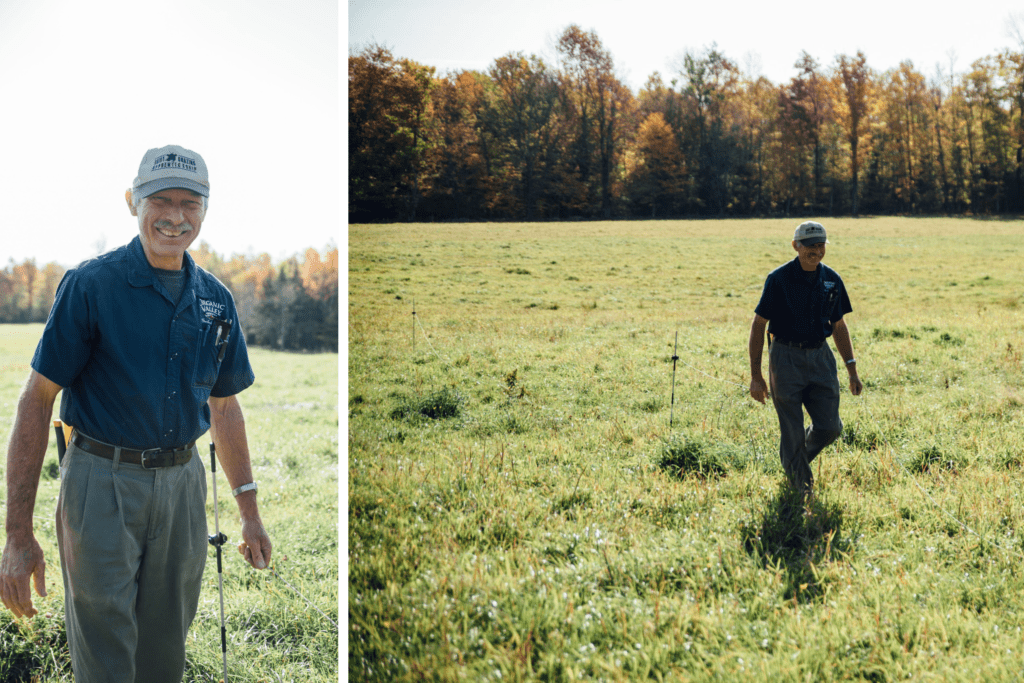
“They just don’t make people like that anymore,” his daughter Abbie said of her Dad. “He’s calm, steady, and doesn’t sweat the small stuff. He’s an amazing teacher. I have a friend who says Dad is the closest to an enlightened being he knows.”
If you look up what it means to be enlightened the gist is that an enlightened person is mindful of himself and the world around him. He is curious and willing to continue learning.
It makes sense when you hear Leon talk about the work that he’s done to ensure the farm is in balance with the land, the animals and the environment. Leon and his wife Linda took over ownership of the farm from Leon’s great-great-grandparents. But, he’ll be quick to tell you that the land isn’t his.
“I feel like I’m not an owner of this place, but a caretaker in a long line of caretakers,” Leon said.
The family cares for over 300 acres of pasture and cropland at an elevation of 2,000 feet above sea level. Leon will tell you that on paper his land isn’t considered to be viable because of it’s soil health. It’s rocky, acidic, it doesn’t drain well…and the list goes on. Yet, Leon and his grandfathers before him have been able to make it work by having cows on the land. The system has increased the organic matter of the soil dramatically over the years through intensive rotational grazing.
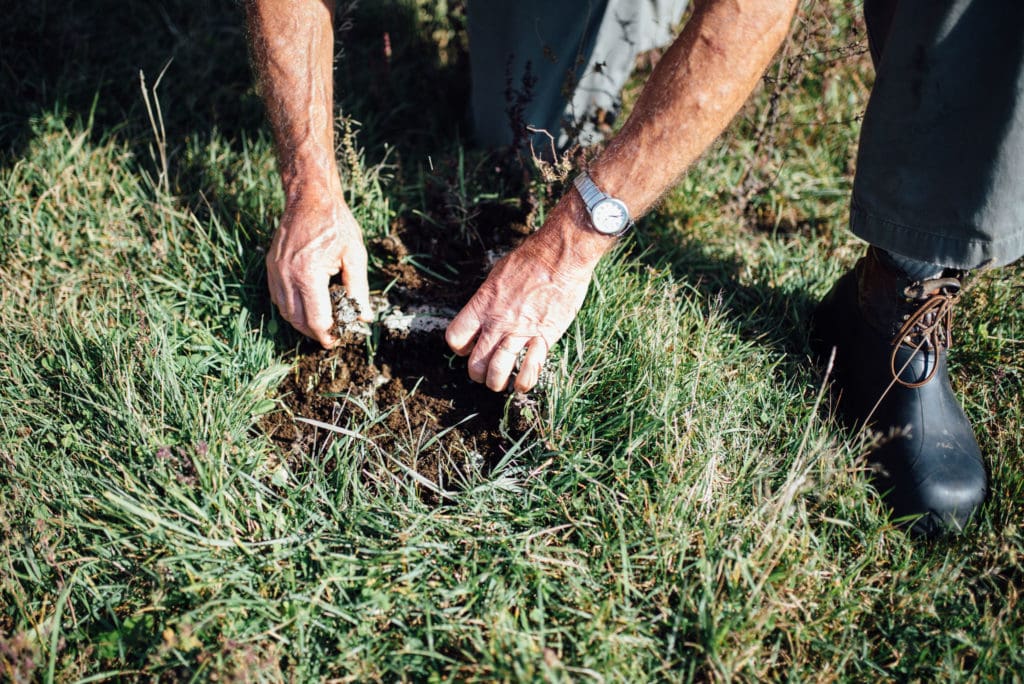
Leon picked up the sun-dried leftovers of a cow’s lunch, decomposing cow manure. He pulled out an earthworm, a key component to healthy soil. His land isn’t considered to be prime farmland, yet a rotational grazing system has allowed the farm to dramatically improve the soil health, make a living and provide dairy foods for the region.
“Grazing is a really good fit because we are not disturbing the soil infrastructure. The cows are only affecting the surface of the soil and not what’s underneath, like what we would be doing if we tilled the soil.”
Leon has a degree in Plant & Soil Science from the University of Vermont and has never lost his passion for soil health and clean water. He led the farm’s transition to organic in 2008 which allowed the farm to continue to be profitable into the future in a way that Leon says, “feels right.”
“About 35 years ago we gave up plowing, so we have our farm in permanent sod, and we don’t lose soil from erosion. We don’t disturb the millions of rocks under the surface of the soil,” Leon chuckled. “It seemed like a really good fit.”
Abbie echoes her Dad’s sentiments about the way they farm.
“Soil is everything, it’s how we are fed and how we have clean water and clean air,” she said.
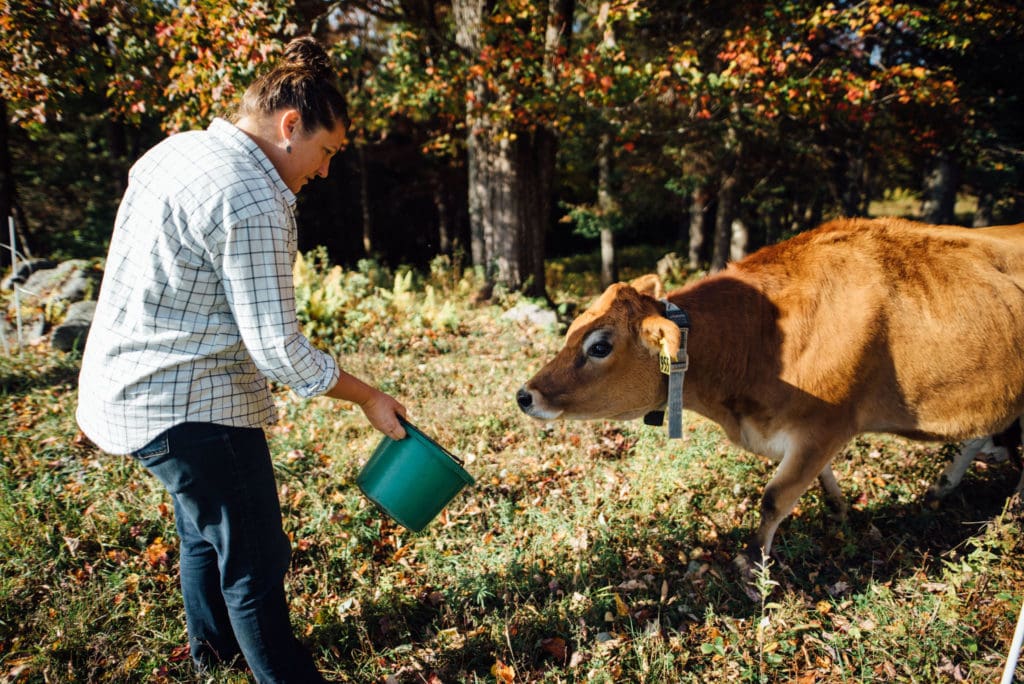
Together the goal for Leon, Linda and Abbie has always been to make food in a way that is good for the land, the cows and their local community. That created this sense of balance they all seem to have. Abbie says it’s what’s made them sustainable and kept them in business for so long.
“We are equally managing the land and cows. If the land isn’t healthy then the cows won’t be and vice versa,” Abbie said. “It’s all cyclical and everything we are doing is devoted to trying to ensure that sure those factors are balanced at the end of every day.”
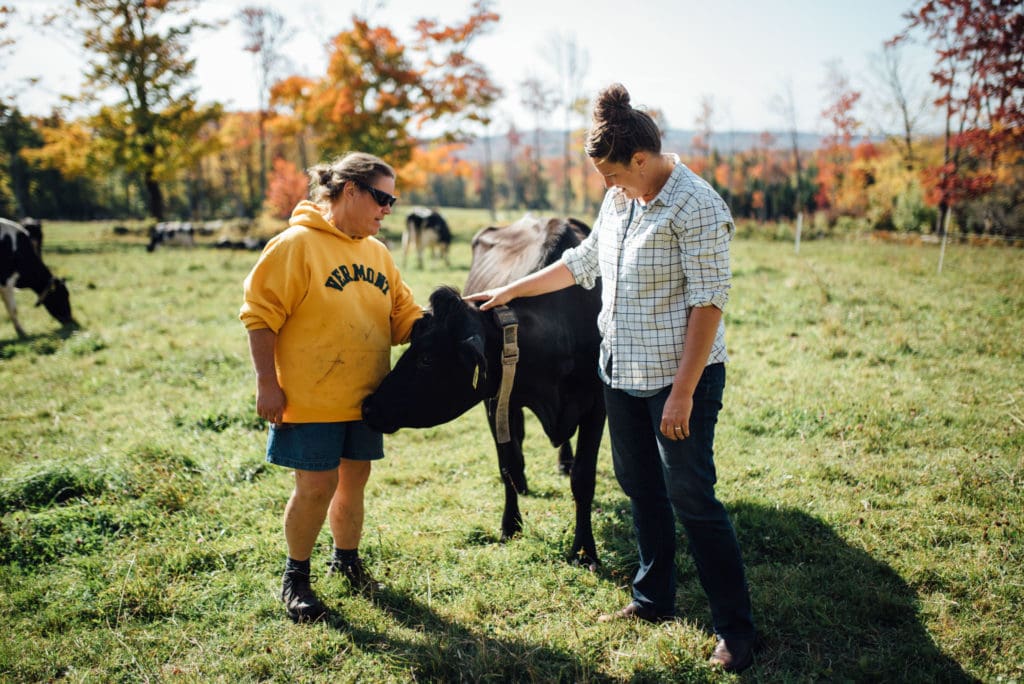
Linda Corse with her daughter Abbie at the Corse Farm Dairy in Whitingham, Vermont.
The cows seem pretty content with the whole system too. The farm consists of a herd of about 100, of which 55 are milking cows. A practice that they’ve done for years is pairing their calves with a buddy at about 2 days old. It’s a friendship that Abbie says usually sticks.
”They have a friend for life…Pancake and Licorice are always together,” Abbie said.
You’re wondering, how did a cow get a name like Licorice? Each year they have a naming theme for their cows and the luckiest person on the farm is the one who gets to choose that theme and the names for the year. Abbie’s 8-year-old son Eli got to choose the names last year.
“I named them after sweets and candies. We had girl twins so I named one Kit and one Kat,” Eli said proudly.
The farm has a mixture of friendly black and white Holsteins, Jerseys, and red and white Holsteins that the Corse family members recognize from memory, especially the Jerseys.
“We have a debate over how many Jerseys we should have in the herd. They’re mischievous,” Abbie said.
Abbie walks beside the cows like she’s walking alongside a good friend. The colors of the red and white Holsteins seem painted to match the landscape at this time of year.
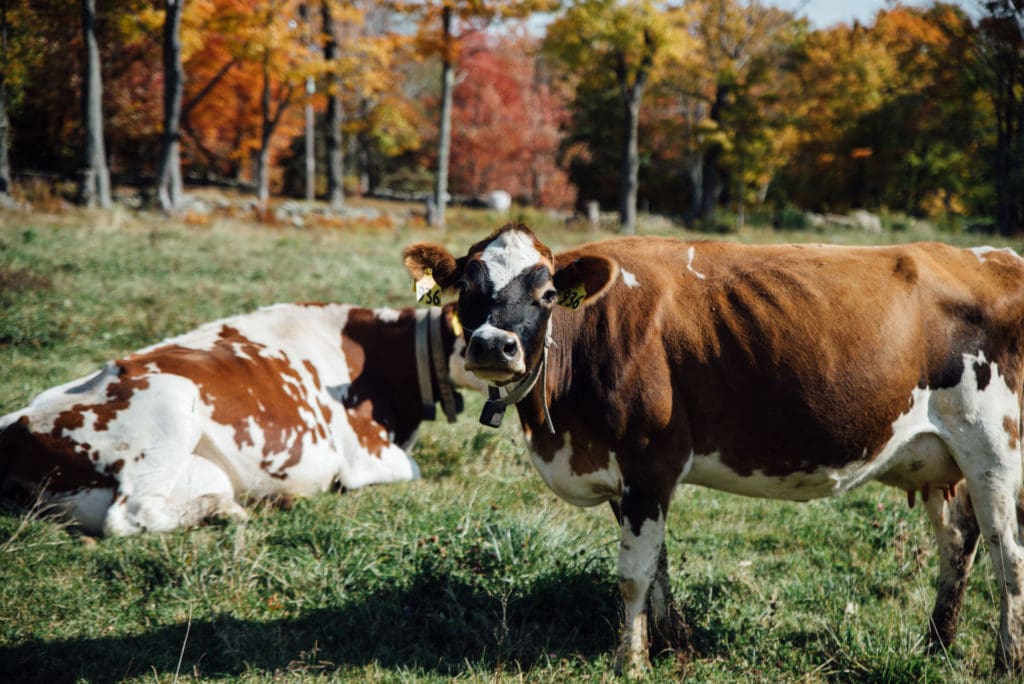
The cows are pastured in a way that is good not only for soil health but also the water. They have access to water troughs in each of their paddocks so that they don’t need to walk to water. Leon says there are no waterways going through any of their pasture from their hilltop farm all the way to the Connecticut River.
“We believe that that plays into the whole bigger water quality picture. What we do here is only one little bit of that. But, we need to be part of the whole puzzle that protects water quality,” Leon said.
Leon’s sense of balance comes from a connectedness to the earth and everything around him. Perhaps we could all take a lesson from Leon and bring a little more balance to our lives too.
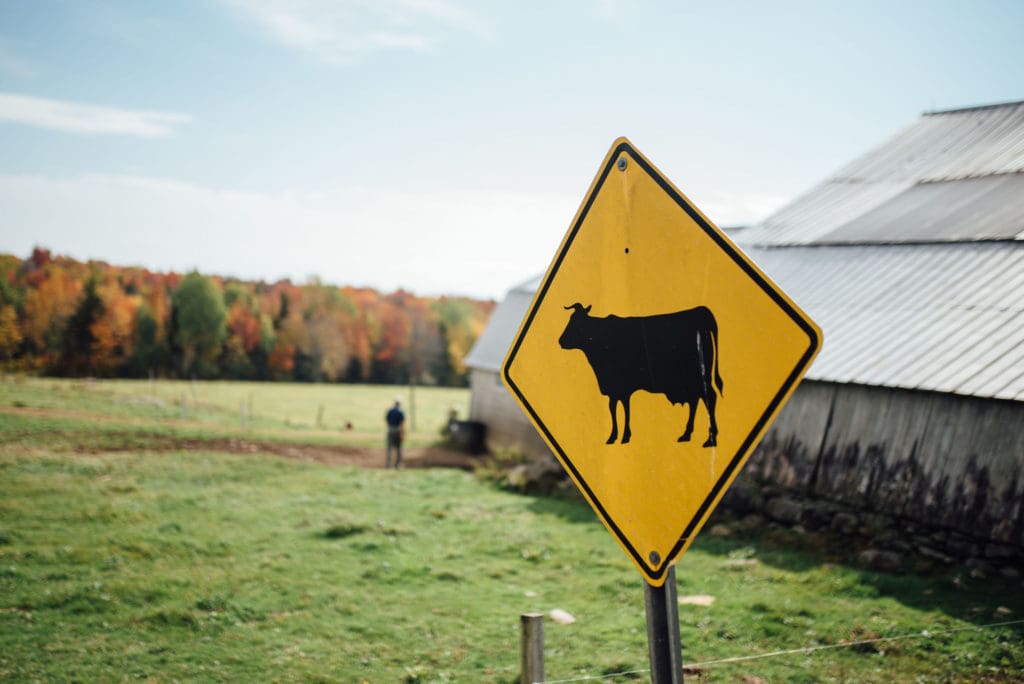
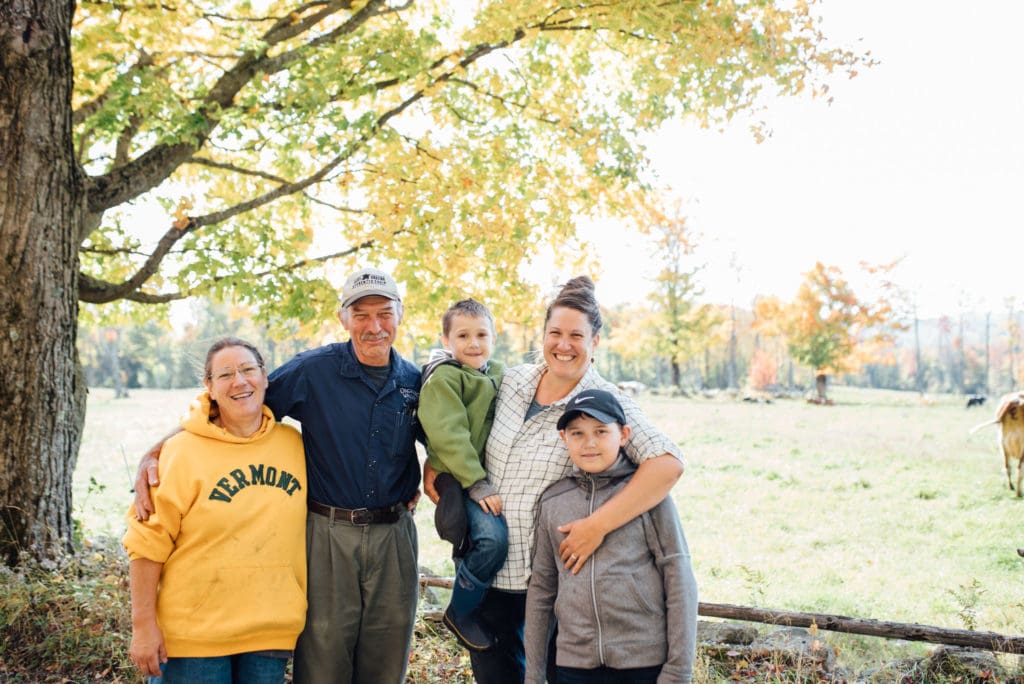
From left to right: Linda Corse, Leon Corse, Abbie Corse and her sons Niko and Eli.
In this video Leon and Abbie share how they found balance through regenerative farm practices that are good for soil health and water quality.

